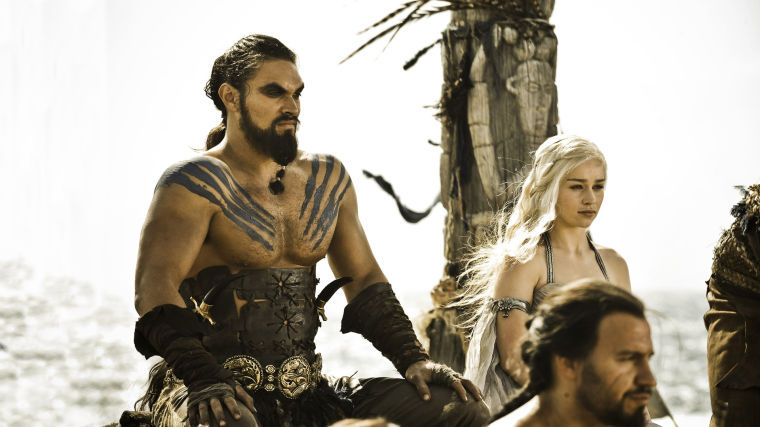
“Game of Thrones has the power to turn anyone into a fanatic. It is not nearly as complex and involved as The Lord of the Rings series, to which many compare it. Rather than appealing to a cult of wizard-loving followers, it reaches out beyond fantasy nerds to the masses.” — Danielle Ohl
The train rattled through yet another unrecognizable section of this state and I sighed, praying the Wi-Fi would work for once. Just once. The man sitting to my left squirmed awkwardly, undoubtedly a symptom of our uncomfortable but cordial exchange when he first sat down. Sighing again, I pulled out my laptop. The man, a blond, nerdy-looking 20-something, now watched me from the corner of his eye. Let’s call him Larry. I opened my computer and laughed with surprise at the unexpected image on the screen: Jeor Mormont’s bearded scowl. Even more startling was the voice that joined in my guffaw: Larry was beaming, laughing along at Mormont’s seemingly baffled countenance.
“You watch Game of Thrones?” he asked me.
Game of Thrones: plasma-screen potentate, cultural czar, uniter of strangers and bringer of binge watches around the country. The epic book-turned-television series deserves a name as illustrious and excessive as its many high-born characters. It has the power to ensnare, enthrall and engage two travelers in a deep, two-hour conversation.
But why?
While Larry clearly fit the stereotype of a Dungeons & Dragons fanboy with a love of high fantasy, I don’t. I’ve never finished a Lord of the Rings movie, identified as a Trekkie or built a shrine to George Lucas. I had a short Twilight phase, but I was 12 and I don’t like to talk about it. Long story short, I’ve never fan-girled over anything nearly as fantastical as Game of Thrones. Yet a few nights ago, I stayed up until 4 a.m. to finish the third season before the premiere of the fourth on Sunday.
Game of Thrones has the power to turn anyone into a fanatic. It is not nearly as complex and involved as The Lord of the Rings, to which many compare it. Rather than appealing to a cult of wizard-loving followers, it reaches out beyond fantasy nerds to the masses.
True, there are some people who have learned Dothraki and memorized all houses of the Seven Kingdoms. Most, however, have not. Game of Thrones is exciting not because of its hardcore fantasy genre, but because the central tenets upon which it rests, love and war, are age-old and universal.
Look at Daenerys Targaryen and Khal Drogo. Their relationship, though rocky at first, is one of complete respect and devotion. It has a beauty most can appreciate. Similarly, Daenerys’ insurmountable anguish over Drogo’s death is resounding and accessible. Most can relate to the death of a loved one, even if that death is triggered by blood magic and the sacrifice of a demon child.
The War of the Five Kings involves five separate men claiming their right to one thing: power. Though medieval battles between king and conquered are pretty rare nowadays, struggle for power and ownership is not. It goes on in workplaces, in classrooms, between friends and within households. The show’s setting, a foreign fantasy land, does not detract from the conflict, allowing viewers to take their own side. We’re free to root for whichever king (or queen) we please.
In Game of Thrones, there is no correct side. Throughout the saga thus far, no one character seems to be the clear hero. While some, such as Joffrey Baratheon and Walder Frey, are clearly meant to be hated, most characters are open to the watcher’s interpretation. Is Daenerys a true queen or will power corrupt her like it did her mad father? Was Robb Stark a valiant leader or just a foolish child leading an impossible cause? Cersei and Tywin Lannister are terrible, for sure, but what about Jamie and Tyrion? Nothing is unambiguous; everything is up for interpretation.
Game of Thrones is an irresistible combination of known concepts set in an unknown world. The anticipation for Sunday is palpable because many know: When you watch Game of Thrones, you’re obsessed or you’re not alive. There is no middle ground.
[ READ MORE: Get excited: Game of Thrones returns Sunday ]



